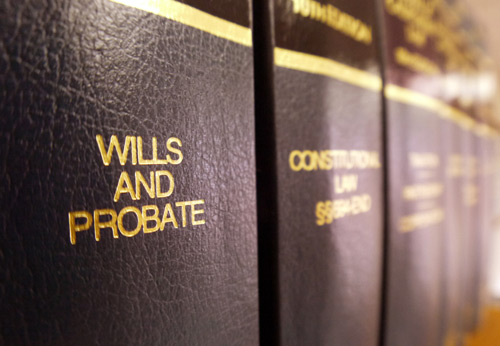In October the North Carolina Court of Appeals issued an unpublished opinion addressing the circumstances under which it is appropriate to grant a motion to dismiss in the context of a will caveat.[1] A caveat is a legal challenge to the probate of a will when there is confusion or disagreement as to the interpretation of the will. The three issues addressed were: (1) can a caveat challenge only a part of a will; (2) can an executor who presents a will for probate later file a caveat; and (3) can one who accepts a benefit under a will later challenge its validity via caveat?…
-
-
Challenging the Validity of a Will vs. the Construction of a Will: North Carolina Court of Appeals Clarifies
Earlier in September the North Carolina Court of Appeals highlighted the procedural difference between challenging the validity of a will through a caveat proceeding and resolving questions as to the construction of a will through an action for declaratory judgment.[1] Plaintiff, Deborah Hildebran (“Hildebran”) was listed as the executrix of her father’s will (the “Will”). Upon her father’s death, the Will was probated in common form before the clerk and Hildebran was appointed executrix. The Will contained several handwritten markings, notably a line that struck through the name of the testator’s granddaughter Chanté Brittian…
-
N.C. Court of Appeals: Caveators Were Not Prejudiced By Dead Man’s Statute Since the Jury “heard the gist of caveators’ evidence.”
In 1960 Charles Pickelsimer (“Charles”) inherited significant stock holdings in a family telecommunications company.[1] Over the next 45 years, Charles gave his children and grandchildren stock certificates as gifts. When he sold the company in 2008 for $65 million, Charles and his children received significant cash distributions. In 2009, Charles and his wife executed an estate plan to protect their assets, and their children were the primary beneficiaries. Charles was diagnosed with mild dementia and memory loss in January 2010, and his wife died in March of that year. His condition continued to subsequently decline. Charles executed a new estate plan in August 2010 (“2010…
-
Removal of Corporate Trustees in North Carolina
The landscape of the American economy changed dramatically in the last decade, particularly due to the 2008 financial crisis. America’s largest commercial banks were forced to sell assets, reorganize, shake-up top management positions, and/or close altogether. As a result, trusts managed by corporate trustees experienced high turnover among trust officials and changes in corporate ownership. While there are many advantages to hiring a corporate trustee, unsatisfied beneficiaries find it difficult to remove them, absent a flagrant breach of duty or express language in the trust document. While many corporate trustee relationships are positive, some beneficiaries become frustrated by a lack of control when confronted with mediocre…

